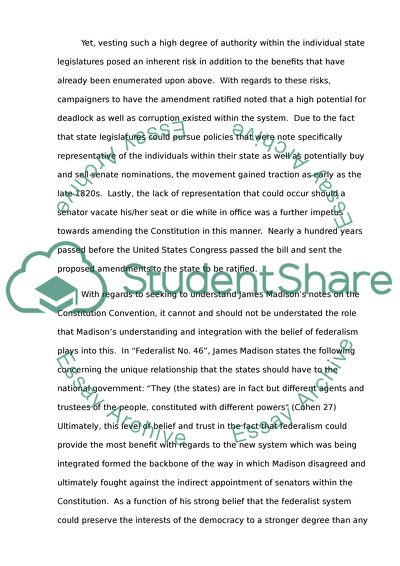Cite this document
(“The 17th Amendment: An Analysis and Review Essay”, n.d.)
Retrieved from https://studentshare.org/history/1474936-the-17th-amendment-an-analysis-discussion-and-review
Retrieved from https://studentshare.org/history/1474936-the-17th-amendment-an-analysis-discussion-and-review
(The 17th Amendment: An Analysis and Review Essay)
https://studentshare.org/history/1474936-the-17th-amendment-an-analysis-discussion-and-review.
https://studentshare.org/history/1474936-the-17th-amendment-an-analysis-discussion-and-review.
“The 17th Amendment: An Analysis and Review Essay”, n.d. https://studentshare.org/history/1474936-the-17th-amendment-an-analysis-discussion-and-review.


